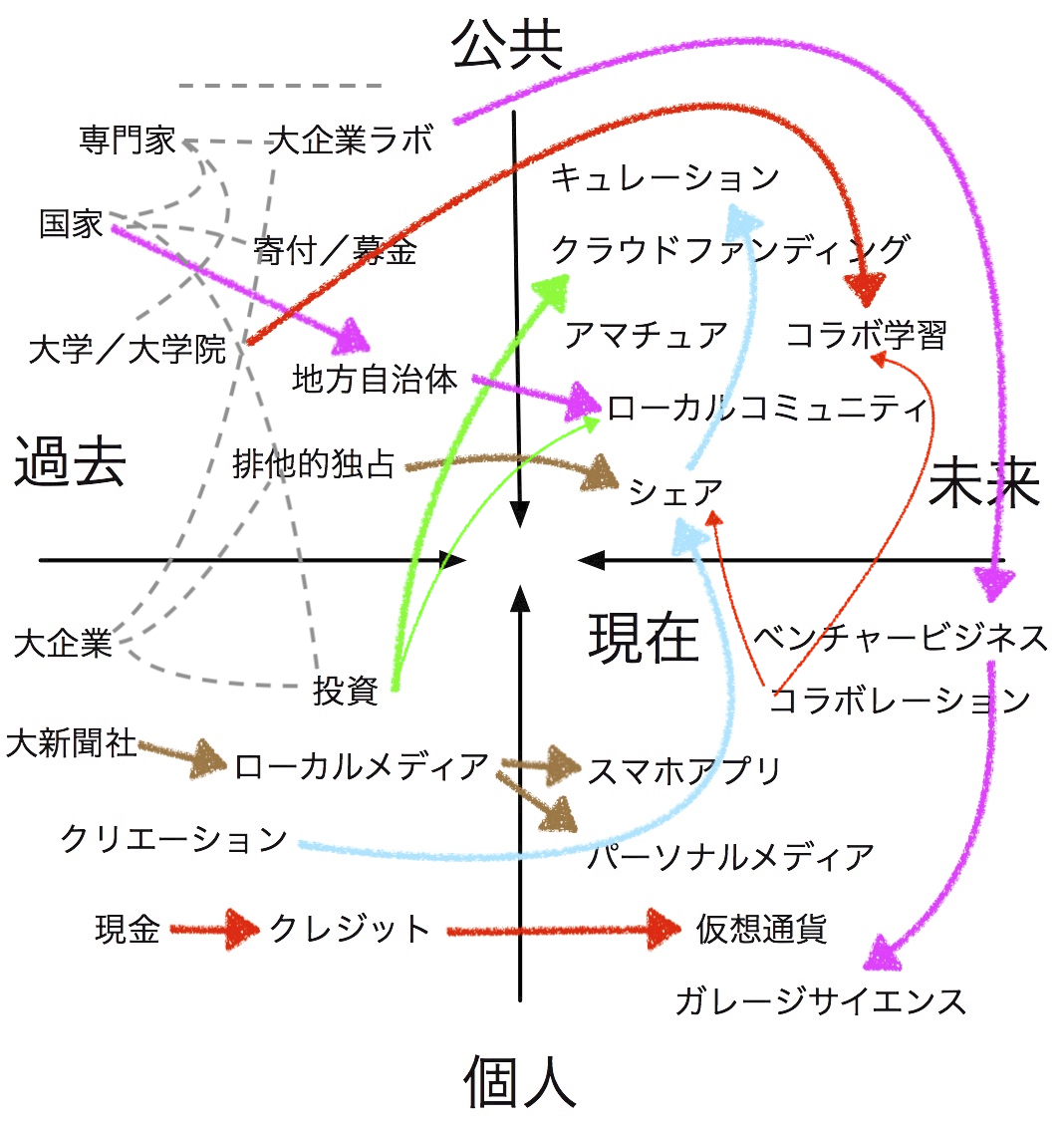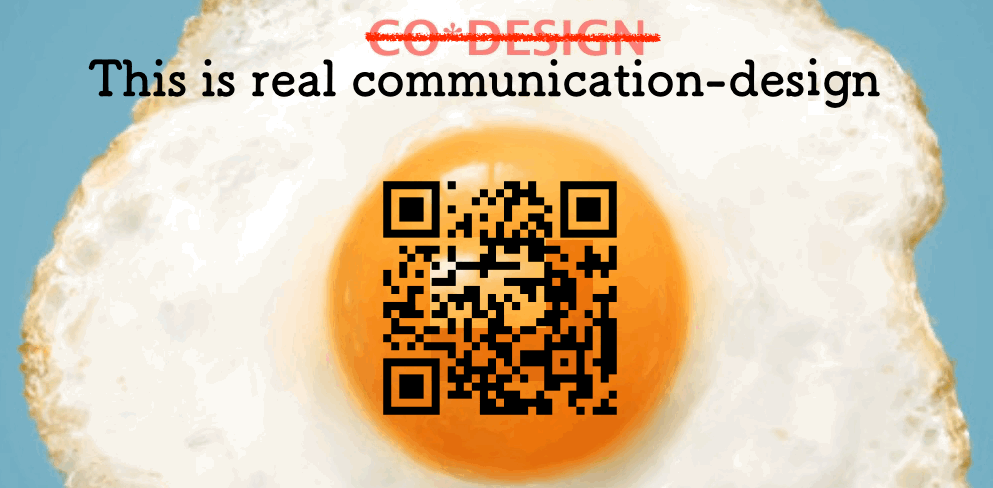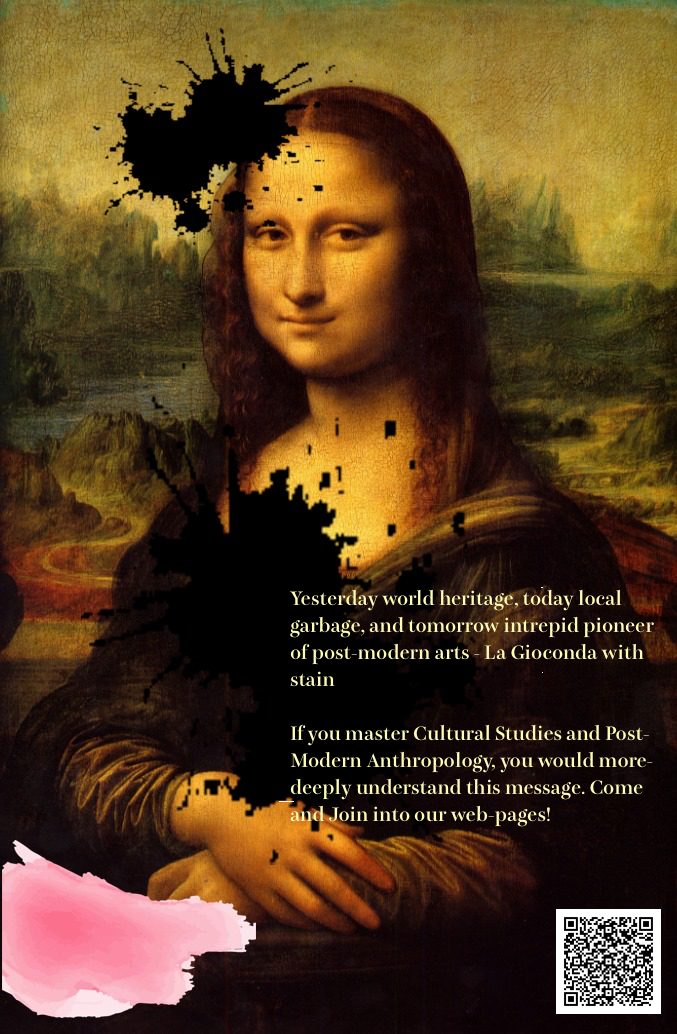
資料の分析
| 1 |
スマホは使うがパソコンは苦手──コロナ
禍で露呈した日本の労働力の弱点 出典:https://www.newsweekjapan.jp/stories/business/2020/04/post-93272.php マルガリータ・エステベス・アベ(米シラキュース大学准教授)2020年4月28日 Margarita Estevez-Abe |
コメンタリー |
| 2 |
かつての日本は、ハイテクの国であった。
ところが現在ではIT化が遅れ、労働生産性もイ
タリアやスペインといった南欧諸国より低い。 |
※労働生産性の統計の
取り方には、時間あたり(21/36)、1人あたり(21/36)、製造業(14/31)という3種の基準がある。(_)内は順位 |
| 3 |
日
本は高齢化による若年男性労働者数の減少を高齢者と既婚女性のパート就業率を高めることで対処したので、労働力の質が下がり、労働生産性が落ちたという人
もいる。しかし、やはり超高齢化が進むドイツは日本同様、高齢男性と既婚女性のパートタイム労働の就業率を底上げしてきたが、時間当たりの労働生産性は日本よりもずっと高い。 |
|
| 4 |
国際成
人力調査(PIAAC)という、16歳か
ら65歳までの労働者のスキル調査によると、日本の労働者の読解力と数的思考力は国際的にもトップレベルである。加齢による能力低下を考慮しても、国際的
に非常に高いレベルを維持している。 |
|
| 5 |
なぜ、世界トップクラスの人的資本に恵ま
れている日本の労働生産性が低いのか? その理由の1つはIT化の遅れだ。日本では他の先進国に比べ、職場や自宅でコンピューターを使わない労働者が(若
年労働者を含めて)非常に多い。 |
「世界トップクラスの人的資本に恵まれて いる」は国際成 人力調査(PIAAC)によるわけか。 |
| 6 |
日本は、スマホ普及率の増加に伴ってコン
ピューター使用率が減少した稀有な国でもある。桜田義孝前
五輪担当大臣兼サイバーセキュリティ戦略本部担当大臣が、パソコンも使わず、USBが何かも知らないことで物議を醸したが、その桜田氏もスマホは使ってお
り、「桜田現象」は日本の現状の象徴でもある。スマホのアプリ開発で日本が世界を凌駕しているわけでもない。単に教育機関や職場のIT化が非常に遅れてお
り、せっかくの良質な労働力の真価が発揮されていないだけだ。 |
CT担当大臣がパソコンすらまともに使え ないという「桜田現象」は、日本の病理というよりも、経産省と内閣府が進めるSociety 5.0の意味もわからない内閣の精神病理であると私は思う。 |
| 7 |
オンライン授業なぜできない |
|
| 8 |
新型コロナウイルスによるパンデミックへ
の対応を見ても、日本のIT化の遅れは顕著だ。学校閉鎖になった小中高では、オンラ
イン授業への移行が全くなされなかった。IT化がもっと進んでいる大学でも事情は他国とかなり違う。首都圏では新学期を1カ月ほど遅らせる
大学も多いが、知り合いの関係者の話によると、この期間を使ってオンライン授業への
移行を準備する意味合いもあるらしい。これには衝撃を受けた。 |
|
| 9 |
学期中にパンデミックに対応せねばならな
かった欧米の多くの大学は1週間程度でオンライン授業に移行した。も
ともと米国の大学では授業用のオンライン・プラットフォームが整備されており、オン
ライン授業への移行も既存の仕組みを利用することができ、年齢層の高い教員を含め、無事に一斉オンライン化ができた。南欧の大学でも、既存のプラットフォームと無料ソフトなどを利用して、授業を続
行した。 |
米国>南欧>日本の順で、大学の授業の
ICT化が遅れている。これは恥ずかしいこと。 |
| 10 |
欧
米の大学よりもずっと準備期間があったはずの日本で、なぜ多くの大学が新学期を遅らせる必要があったのか? 自宅にインターネット環境がない学生がいる、
コロナ騒ぎで外国人留学生が4月初旬までに入国できないなどの理由が挙げられたが、一方で、東京大学は暦どおり4月からオンライン授業を開始した。 |
|
| 11 |
IT化の遅れの元凶は、日本の政治と組織にあるのではないか。政府は既得権益に
は優しいが、一般国民全員に利益がある教育機関のIT化投資を長らく怠ってきた。民間組織も、初期投資が大きく、年功序列のヒエラルキーをひっくり返して
しまうIT化になかなか踏み切れないのだろう。日本の「ハンコ文化」が典型的だ。 |
・責任を大学の外に押し付ける「日本の政
治と組織」原因説は、大学のインサイダーである私には嬉しいが、国民と大学の責任は大きいと思う。大学は明らかに遠隔教育に怠慢を積み重ねてきた。 ・「ハンコ文化」は、いわゆる文化遅滞の大きな原因だが、この問題がもう四半世紀以上指摘 されてきても誰も態度を改めようとしない。ハンコでチェックする職域の連中が管理職だからである。 |
| 12 |
日本の超高齢化社会を持続可能にするため
には、労働生産性の向上は不可欠だ。今回の危機が日本の大学や企業にとってショック療法となり、日本のIT化に弾みをつける契機になることを期待してい
る。 Social Protection and the Formation of Skill: A Reinterpretation of the Welfare State. Gender Bias in Skills and Social Policies: The Varieties of Capitalism Perspective on Sex Segregation. |
「労働生産性の向上は不可欠」って日本の 経営者もアメリカのコンサルタント(ビジネススクールの先生)も口を揃えていうが、こんな「労働生産性カーゴ・カルト」信仰はもうやめにしてほしい。ネット用語で言うところの 「お腹いっぱい」である。私が「今回の危機が日本の大学や企業にとってショック療法となり、日本のIT化に弾みをつけ」労働生産よりも、人間生活の充実 (QOL)を高める社会に組み替えてゆくことを祈っている。 |
| 13 |
★ |
|
| 14 |
コロンビア大学のマーク・テイラー(Mark
C. Taylor)
はNew York Times, April 26, 2009 に「僕たちが知っているような大学をぶっ壊しな(End the
University as We Know It)」というエッセーを寄稿し、現今の「大学院教育は「高等教育のデトロイト」と化している」と酷評し
た。米国の大学院プログラムは、マーケットが存在しない商品をつくり、需要がなくな
りつつある技能を育成している。にもかかわらず学費は高くなる一方とい
うわけだ。 |
テイラーの提案(End the University as We Know It) は次のとおり/ 1. Restructure the curriculum, beginning with graduate programs and proceeding as quickly as possible to undergraduate programs./ 2. Abolish permanent departments, even for undergraduate education, and create problem-focused programs./ 3. Increase collaboration among institutions./ 4. Transform the traditional dissertation./ 5. Expand the range of professional options for graduate students./ 6. Impose mandatory retirement and abolish tenure |
| 15 |
1. Restructure the curriculum, beginning with graduate programs and proceeding as quickly as possible to undergraduate programs. The division-of-labor model of separate departments is obsolete and must be replaced with a curriculum structured like a web or complex adaptive network. Responsible teaching and scholarship must become cross-disciplinary and cross-cultural./ Just a few weeks ago, I attended a meeting of political scientists who had gathered to discuss why international relations theory had never considered the role of religion in society. Given the state of the world today, this is a significant oversight. There can be no adequate understanding of the most important issues we face when disciplines are cloistered from one another and operate on their own premises./ It would be far more effective to bring together people working on questions of religion, politics, history, economics, anthropology, sociology, literature, art, religion and philosophy to engage in comparative analysis of common problems. As the curriculum is restructured, fields of inquiry and methods of investigation will be transformed. | カ
リキュラムを再構築し、大学院課程から始めて、できるだけ早く学部課程に移行する。学科ごとの分業制は時代遅れであり、網の目や複雑な適応ネットワークの
ように構成されたカリキュラムに置き換えなければならないのです。つい数週間前、私は、国際関係論が社会における宗教の役割を考慮したことがない理由を議
論するために集まった政治学者の会合に出席しました。今日の世界情勢を考えれば、これは重大な見落としです。宗教、政治、歴史、経済、人類学、社会学、文
学、芸術、宗教、哲学などの問題に取り組んでいる人々が集まり、共通の問題について比較分析を行う方がはるかに効果的でしょう。カリキュラムの再構築に伴
い、探究分野や調査方法も変化していくだろう。 |
| 16 |
2.
Abolish permanent departments, even for undergraduate education, and
create problem-focused programs. These constantly evolving programs
would have sunset clauses, and every seven years each one should be
evaluated and either abolished, continued or significantly changed. It
is possible to imagine a broad range of topics around which such zones
of inquiry could be organized: Mind, Body, Law, Information, Networks,
Language, Space, Time, Media, Money, Life and Water./ Consider, for
example, a Water program. In the coming decades, water will become a
more pressing problem than oil, and the quantity, quality and
distribution of water will pose significant scientific, technological
and ecological difficulties as well as serious political and economic
challenges. These vexing practical problems cannot be adequately
addressed without also considering important philosophical, religious
and ethical issues. After all, beliefs shape practices as much as
practices shape beliefs./ A Water program would bring together people
in the humanities, arts, social and natural sciences with
representatives from professional schools like medicine, law, business,
engineering, social work, theology and architecture. Through the
intersection of multiple perspectives and approaches, new theoretical
insights will develop and unexpected practical solutions will emerge. |
学
部教育であっても常設の学科を廃止し、問題に特化したプログラムを作る。これらの常に進化し続けるプログラムにはサンセット条項が設けられ、7年ごとに各
プログラムが評価され、廃止、継続、大幅な変更のいずれかがなされるべきです。このような探究のゾーンを組織するためのトピックは、幅広く想像することが
できます。例えば、「水」のプログラムを考えてみましょう。今後数十年の間に、水は石油よりも差し迫った問題となり、水の量、質、分布は、科学的、技術
的、生態学的に大きな困難をもたらすと同時に、政治的、経済的にも深刻な課題を突きつけるでしょう。これらの厄介な現実的問題は、哲学的、宗教的、倫理的
な重要な問題を考慮することなしには、適切に対処することができません。結局のところ、信念が実践を形成するのと同様に、実践が信念を形成するのです。複
数の視点やアプローチが交わることで、新たな理論的洞察が生まれ、予想外の実践的解決策が生まれることでしょう。 |
| 17 |
3.
Increase collaboration among institutions. All institutions do not need
to do all things and technology makes it possible for schools to form
partnerships to share students and faculty. Institutions will be able
to expand while contracting. Let one college have a strong department
in French, for example, and the other a strong department in German;
through teleconferencing and the Internet both subjects can be taught
at both places with half the staff. With these tools, I have already
team-taught semester-long seminars in real time at the Universities of
Helsinki and Melbourne. |
.
教育機関間の連携を強化する。すべての教育機関がすべてのことを行う必要はなく、テクノロジーによって、学校がパートナーシップを結び、学生や教員を共有
することが可能になります。教育機関は縮小しながら拡大することができるようになります。例えば、ある大学にフランス語の強い学科があり、もう一方にはド
イツ語の強い学科があるとします。テレビ会議とインターネットを通じて、両方の科目を両方の場所で、半分のスタッフで教えることができるようになるので
す。このようなツールを使って、私はすでにヘルシンキ大学とメルボルン大学で、リアルタイムで学期ごとのセミナーをチームティーチングしています。 |
| 18 |
4.
Transform the traditional dissertation. In the arts and humanities,
where looming cutbacks will be most devastating, there is no longer a
market for books modeled on the medieval dissertation, with more
footnotes than text. As financial pressures on university presses
continue to mount, publication of dissertations, and with it scholarly
certification, is almost impossible. (The average university press
print run of a dissertation that has been converted into a book is less
than 500, and sales are usually considerably lower.) For many years, I
have taught undergraduate courses in which students do not write
traditional papers but develop analytic treatments in formats from
hypertext and Web sites to films and video games. Graduate students
should likewise be encouraged to produce “theses” in alternative
formats. |
伝
統的な学位論文を変革する。迫り来る人員削減が最も大きな打撃を与える人文科学分野では、本文よりも脚注が多い中世の学位論文をモデルにした書籍の市場は
もはや存在しない。大学の出版社に対する財政的圧力はますます高まり、学位論文の出版、そしてそれによる学術的な証明はほとんど不可能となる。(書籍化さ
れた学位論文の大学出版局での平均印刷部数は500部以下であり、売上もかなり低いのが普通である)。私は長年にわたって学部の講義を担当してきました
が、そこでは学生は従来の論文を書かず、ハイパーテキストやウェブサイト、映画やビデオゲームといった形式で分析的な処理を展開します。大学院生も同様
に、別のフォーマットで「論文」を作成するよう奨励されるべきです。 |
| 19 |
5.
Expand the range of professional options for graduate students. Most
graduate students will never hold the kind of job for which they are
being trained. It is, therefore, necessary to help them prepare for
work in fields other than higher education. The exposure to new
approaches and different cultures and the consideration of real-life
issues will prepare students for jobs at businesses and nonprofit
organizations. Moreover, the knowledge and skills they will cultivate
in the new universities will enable them to adapt to a constantly
changing world. |
大
学院生の職業選択の幅を広げる。ほとんどの大学院生は、訓練を受けているような職業に就くことはないでしょう。したがって、高等教育以外の分野で働くため
の準備を支援することが必要です。新しいアプローチや異文化に触れ、現実の問題を考えることは、企業や非営利団体で働くための準備となります。さらに、新
しい大学で培われる知識やスキルは、常に変化する世界に適応することを可能にします。 |
| 20 |
"In
1962 he published the first of his well-known books on media and
society: The Gutenberg Galaxy: The Making of Typographic Man, won
Canada's top literary prize, the Governor-General's award, in 1963. His
next book, Understanding Media: The Extensions of Man (1964), is his
best-known critical assessment of modern technology.His article “What
TV Is Really Doing to Your Children,” appeared in 1967, the same year
as his book The Medium Is the Massage, coauthored by Quentin Fiore.
(The title is a pun on his earlier statement, “The medium is the
message.”)"
-https://kids.britannica.com/students/article/Marshall-McLuhan/275596 |
1962
年には、メディアと社会に関する有名な本の第一作目を出版した。グーテンベルク・ギャラクシー』。1963年にはカナダで最も権威のある文学賞、総督賞を
受賞した。次の著書『Understanding Media: 1967年、クエンティン・フィオーレとの共著『The Medium Is the
Massage』と同じ年に、「テレビがあなたの子どもたちに本当にしていること」という論文を発表している。(このタイトルは、「メディアはメッセージ
である」という彼の言葉をもじったものである)。 ※マー シャル・マクルーハンさんは、1962年にメディアと社会についてもっとも良く知られた書物『グーテ ンベルグの銀河系(副題:活字型人間の形成)』を出版し、カナダの最高文学賞である総裁賞(the Governor-General's award)をその翌年の1936年に獲得しました。その次の本は、『メディアの理解(副題:人間の拡張)』は、彼の本で最も知られた現代テクノロジー批 判についての本です。彼の「テレビがほんとうにあなたの子供たちにおこなっていること」とい う論文は1967年に出版されましたが、それは、クエンティン・フィオーレさんとの共著である『メディアはマッサージ』であるという本の出版と同じ年でし た(「メディアはマッサージ」という題名は冒頭にあげた彼が最初のころに言った「メディアはメッセージである」というひょげんをもじって面白く言ったもの です)。 |
| 21 |
Wurman, Richard
Saul, Information anxiety 2,
2001. |
00 Wurman, Richard Saul, Information anxiety 2, 2001. |
| 22 |
Introduction.
1. Information Anxiety in the Internet Age. The Age Of Also. Bit
Literacy. The Rise Of The Prosumer. Alterations On The Information
Landscape. Plugged In Or Plugged Up? Warp-Speed Rules. The Internet Is
The Great Equalizer. The Non-Information Explosion. Forms Of
Information Anxiety. The Greatest Teaching Is Permission-Giving.
Clarification, Not Simplification. The Ted Conference. Order Doesn't
Equal Understanding. Access Is The Antidote To Anxiety |
01 Wurman, Richard Saul, Information anxiety 2, 2001. |
| 23 |
2.
The Business of Understanding. Ode To Ignorance. An Overview Of
Understanding. Aesthetic Seductions. Just The Facts, Please. Personal
Table Of Contents. Guide To The Internet. Latch: The Five Ultimate Hat
Racks. Vantage Points. Classifying Lassie: The Dog Story. The Space
Between Things. The Smart Yellow Pages<194> And Beyond. Mexican
Yellow Pages Project. In The Beginning Is The End |
02 Wurman, Richard Saul, Information anxiety 2, 2001. |
| 24 |
3.
Land Mines in the Understanding Field. Polka Dots On An Edsel. Traps,
Diseases, And Malaises. Look Out For These Instructors.
Instruction-Takers Guaranteed To Get It Wrong. Management Style Versus
Work Style. These Combinations Work Well Together. These Combinations
Spell Trouble. Drawing The Line. What You Take For Granted You Cannot
Improve. |
03 Wurman, Richard Saul, Information anxiety 2, 2001. |
| 25 |
4.
An Age of Connections: Integrated Messages. Making Your Own Connections
First. Remembering What It's Like Not To Know. Creating Interest.
Interest Requirements. Savvy Companies Drive Connection Opportunities.
Channel Conflict. Design In The Digital Age. Quality Check For Your
Information Connection. Connecting Your Messages |
04 Wurman, Richard Saul, Information anxiety 2, 2001. |
| 26 |
5.
The Structure of Conversation. Mapping Conversation. Conversation As A
Transaction. Conversation With An Inanimate Object. Let's Make A
Deal-Bartering As Conversation. Newspapers As A Conversation.
Everything Takes Place Someplace. The Evolution Of The Classified Ad.
Complexity Doesn't Necessarily Mean Confusion. How To Make Information
Less Threatening. The Architecture Of Instructions. |
05 Wurman, Richard Saul, Information anxiety 2, 2001. |
| 27 |
6.
Talk is Deep. The Lost Art Of Conversation. The Art Of Listening. What
The Tech Industry Can Learn From Oprah. Putting Velcro On Facts. Word
Of Mouth. The Art Of Promotion. Designing For Word Of Mouth. Attracting
Attention In This Sea Of Information. Dangers Of Customization. Filters
Of Your Choosing. The First Conversation. An Understanding Model. |
06 Wurman, Richard Saul, Information anxiety 2, 2001. |
| 28 |
7.
There is Always a Question. Teaching With Questions. The First
Question: What Do You Do? Top-Secret Mission Statements. What Is Your
Company Story? My Story: Moments When My Life Changed. Finding The
Right Questions. The Story Of Understanding Usa. Making America
Understandable To Americans. The Right To Copy. Answering Questions
Equals Usability. 20th Century Civilian War Casualties By Country.
Population Distribution. Becoming President. Federal Income/Federal
Expenses. The Ubiquitous Question. Finding Out What You Want To Know. |
07 Wurman, Richard Saul, Information anxiety 2, 2001. |
| 29 |
8.
Finding Things. Maps As Metaphors. Concept Map Of Searching The
Internet. Types Of Information: The Five Rings. Flying Through
Information. See & Go Manifesto. Tools For Searching The Internet.
Starting With Search Engines. Beyond Search Engines. Making A Global
Information Locator Service By Eliot Christian. My Dream. |
08 Wurman, Richard Saul, Information anxiety 2, 2001. |
| 30 |
9.
Beyond Personalities. Condemned To Mahogany Row. Nearer To God Are We.
Group Vs. Individual Goals-Them Against Me. Missing The Obvious.
Promotion: A Deadly Reward. The Competitive Dredge. Information Is Not
The Final Product. Instructions Are Not The Goal. What Do Managers
Manage? Attitude Overhaul. |
09 Wurman, Richard Saul, Information anxiety 2, 2001. |
| 31 |
10.
Empowerment: The Word of the New Century. The Agreement. To Obey Or Not
To Obey? Sphere Of Vision. What Good Is Empowerment? Just Say "Yes". |
10 Wurman, Richard Saul, Information anxiety 2, 2001. |
| 32 |
11.
Instructions: The Driver of Conversation. The Power Of Instructions.
Instructions Are Everywhere. Better Instructions Mean Better
Communications. All Gaul Is Divided Into Three Parts. Building Blocks
Of Actionable Instructions. Objective: What's The Destination? Purpose:
For What Reason? Core: What's The Procedure To Follow? Surrogate
Fingers. Time: What's The Duration? Expectation: What Can I Anticipate
Along The Way? Failure: How Do I Recognize An Error? The Road To
Everywhere. Relative And Absolute Instructions. The Treasure Hunt
Approach. |
11 Wurman, Richard Saul, Information anxiety 2, 2001. |
| 33 |
12.
Talking on the Job: Seeing Instructions in the Context of Work.
Perception Gap. Seeing Labor As People. Instructions Will Become Even
More Important. Fear And Loathing In The Office. Let Them Make
Mistakes. Which Way To The Executive Suite? High-Tech Skills Required.
Duties Once Removed. Glocalization: Tailoring Products To Markets. |
12 Wurman, Richard Saul, Information anxiety 2, 2001. |
| 34 |
13.
Education is to Learning as Tour Groups are to Adventure. Gin-Rummy
Memory. Sacred Bull Fighting. Seeing, Hearing, Expressing. Fear Of
Learning. Defensive Expenditures. Learning About Learning. Learning
Fantasies. Parallel Learning. Terror And Confidence. Information
Ownership. |
13 Wurman, Richard Saul, Information anxiety 2, 2001. |
| 35 |
14.
Learning is Remembering What You're Interested in. Interest
Connections. Discriminating Between Interests And Obligations.
Access<194> Guides. Getting Permission To Learn. The Importance
Of Being Interested. |
14 Wurman, Richard Saul, Information anxiety 2, 2001. |
| 36 |
15.
You Only Learn Things Relative to Something You Understand. Motivating
Models. Theme And Variations. Learning Means Making Connections. How
Big Is An Acre? The Numbers Game. Say I Do, Or Die. Making Sense Of
Numbers. Slicing The Pie: The Nature Of Recreation. Comparing
Components. The Joy Of Discovery. |
15 Wurman, Richard Saul, Information anxiety 2, 2001. |
| 37 |
16.
Hailing, Failing, and Still Sailing. An Ode To Error. Proper Management
Of Failure Breeds Success. You Won't Believe What Went Wrong. The
Breaking Point. Museum Of Failure Is Overnight Success. Some Of My
Failures. |
16 Wurman, Richard Saul, Information anxiety 2, 2001. |
| 38 |
17.
Designing Your Life. Doing What You Want To Do Each Day. Terminal Fame.
Beyond Money. Tops Books. Deciding What To Do With Your Life. Our Lives
And Our Times. What I Do Isn't Work. Design In The Driver's Seat.
Empowering Consumers. Indulgence Versus Guilt. |
17 Wurman, Richard Saul, Information anxiety 2, 2001. |
| 39 |
"A
newspaper headline recently read, "Ittle Red Schoolhouse Dies
Wehn Good Road built." One-room schools, with all subjets being
taught to all the same time, simply dissolve when better
transportation permits specialized spaces and specialized teaching. At the extreme of speeded up movement,
however, specialism fo
sapce adn subject disappears once more. With automation, it is not
only jobs that siappear, and complex roles that reappear.
Centuries
fo specialist stress in pedagogy and inthe arrangemnt of of data now
end with the instantaneous retrieval of information made possible by
electricity. Automation is
information and it not only ends jobs in the
world of work, it ends subjects in the world of learning. It
does not end
the world of learning. The future of work consists of earning a living
in
the automation age. This is a familiar pattern in electric technology
in
general. It ends the old dichotomies between culture and technology,
between art and commerce, and between
work and leisure. Whereas in the mechanical age of fragmentation
leisure had been the absence of work, or mere idleness, the reverse
is true in the electric age. As the age of information demands the
simultaneous use of all our faculties, we discover that we are most at
leisure when we are most intensely involved, very much as with the
artists in all ages." |
McLuhan, Autometion from
"Understanding meida" 最近、新聞の見出しに "Ittle Red Schoolhouse Dies Wehn Good Road built "というのがあった。すべての教科を同時に教えるワンルーム・スクールは、交通の便がよくなり、専門的なスペースと専門的な授業が可能になると、あっさり 姿を消す。しかし、移動のスピードが極限まで上がると、専門性のある科目は再び消滅する。オートメーション化によって出現するのは、仕事だけでなく、複雑 な役割も出現する。教育学やデータ整理の分野で何世紀にもわたって専門性を発揮してきたことが、電気によって瞬時に情報を取り出せるようになったことで、 終わりを告げた。オートメーションは情報であり、仕事の世界での仕事を終わらせるだけでなく、学習の世界での教科を終わらせるのである。しかし、学問の世 界が終わるわけではありません。これからの仕事は、オートメーション時代に生計を立てることである。これは、電気技術全般でよく見られるパターンです。文 化と技術、芸術と商業、仕事と余暇の間の古い二項対立を終わらせるのです。機械的な細分化の時代には、余暇とは仕事のないこと、あるいは単なる無為のこと であったが、電気時代にはその逆が当てはまる。情報化時代には、すべての能力を同時に使うことが要求されるため、私たちは、いつの時代も芸術家がそうで あったように、最も激しく関与しているときに最も余暇があることに気づくのです。 |
| Ecosystem of distance learning, online education | エコシステム:「ITやイン ターネットにおいても、さまざまなネットワークと端末とそれを利用するさまざまな人間のシステムをなしていることがわかる。そのため、生態学理論から用語 とインスピレーションを借りて、比喩的にエコシステムと 言うように なったのである。エヴァンズとシュマレンジーは『マッチメイカー(2016)』において、企業間の連携を促すサービスや物流の場(=プラットフォーム)の 外側にあり、積極的/消極的に影響をもたらすビジネス、会社や組織などを含めた環境要因を、まとめてエコシステム(生態系)と読んでいる」 | |



